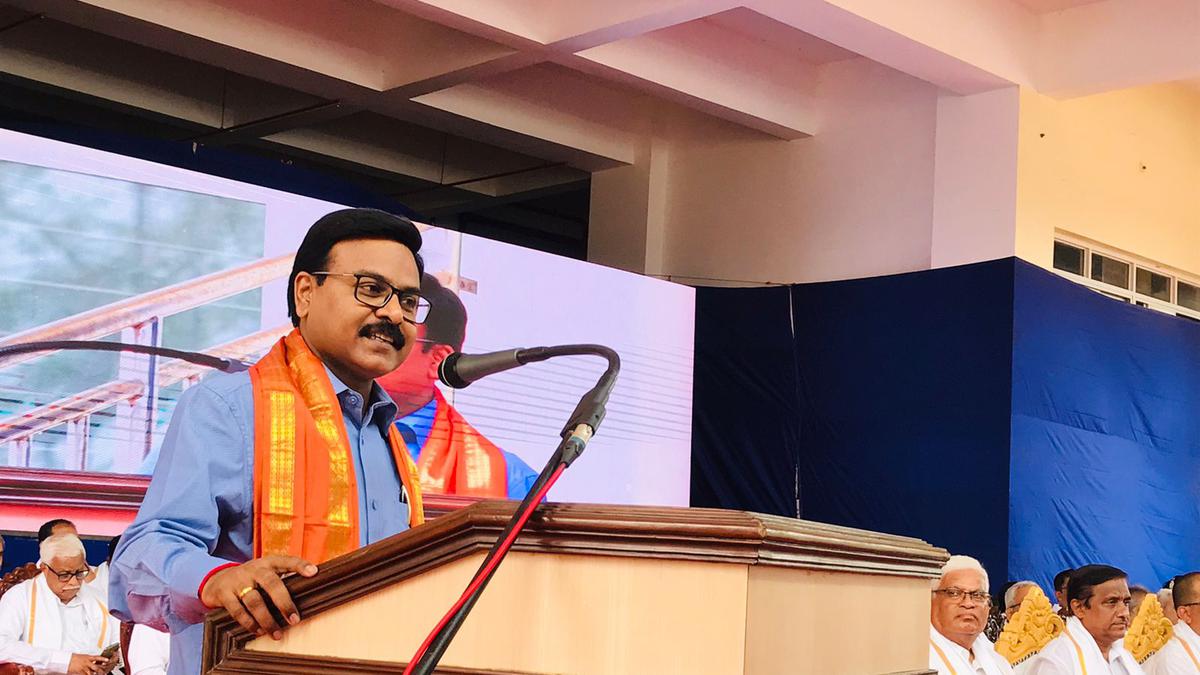
Kerala-based institute has technology for hospitals to convert biomedical waste into soil manure
The Hindu
Thiruvananthapuram-based National Institute for Interdisciplinary Science and Technology (NIIST) is working extensively on converting waste into wealth.
The technology developed by Thiruvananthapuram-based National Institute for Interdisciplinary Science and Technology (NIIST) to convert biomedical waste to soil manure will be released shortly after getting clearance from the Central Pollution Control Board (CPCB), according to NIIST Director C. Anandharamakrishnan.
Addressing the 21st annual convocation of National Institute of Technology-Karnataka (NITK), Surathkal on November 4, Mr. Anandharamakrishnan said handling biomedical waste from hospitals and incinerating them is a big challenge.
The NIIST has devised a technology wherein biomedical degradable waste, namely blood, urine, saliva, cotton and tissues get converted to soil manure in two stages when a solution is added. “The technology, the first in the world, is ready for deployment. Once we get clearance from the CPCB, the same can be used across India,” he said.
Mr. Anandharamakrishnan said the institute, like NITK, is working extensively on converting waste into wealth. Thiruvananthapuram airport is using NIIST technology to convert 500 kg of food waste per day to electricity. NIIST is keen on working closely with strong mechanical engineering and material science teams of NITK in developing sustainable products using agro residues.
Stressing on the need for conserving water and energy, Mr. Anandharamakrishnan said India needs to look for alternative sources of energy. The high cost of biomass conversion to 2G (second generation) ethanol, which is blended with fuel, needs to be reduced. There is need for technology to produce one kg of hydrogen at $1 from the present $5.
In his convocation address, Aeronautical Society of India president and former chairman of DRDO G. Satheesh Reddy said significant developments have taken place in the last four decades, especially in the defence sector. “We have now become self-reliant in the fields of missiles, radars, sonars, electronic warfare, aircrafts, guns, communication systems and submarines,” he said and added, “We are no more importing. We are exporting defence equipment and technologies.”
Youngsters with globally competitive mindset were setting up startups in a big way in India. Nearly 2,000 startups are in defence technology, 300 dealing with drone technology, 500 each dealing with artificial intelligence and cyber space. “The world is looking towards India and expecting the country to give lot of new defence equipment,” he said. He urged budding engineers to develop state-of-the-art products and technologies.

After a long, tiring day all we want is to jump right on our cosy beds and rest comfortably on our soft, fluffy pillows, right? Pillows are not quite appreciated as much as electric cars or air-fryers, for instance. Pillows are a wonderful man-made creation that has improved the lives and sleep of people across the globe. Did you know ages ago people used to rest their heads on a HARD ROCK? So how did humans go from sleeping on stones to cosy, fluffy and soft pillows today? Let’s get into the origin of your everyday pillows!

As the November 30 deadline nears for installing vehicle location tracking devices (VLTD) and emergency panic buttons in public service and nationally permitted goods vehicles in Karnataka, transport unions representing cab, bus, and truck operators are urging the government to reconsider the mandate. They argue that the high cost of these devices and a lack of awareness have made it difficult for many vehicle owners to comply with the requirement.









